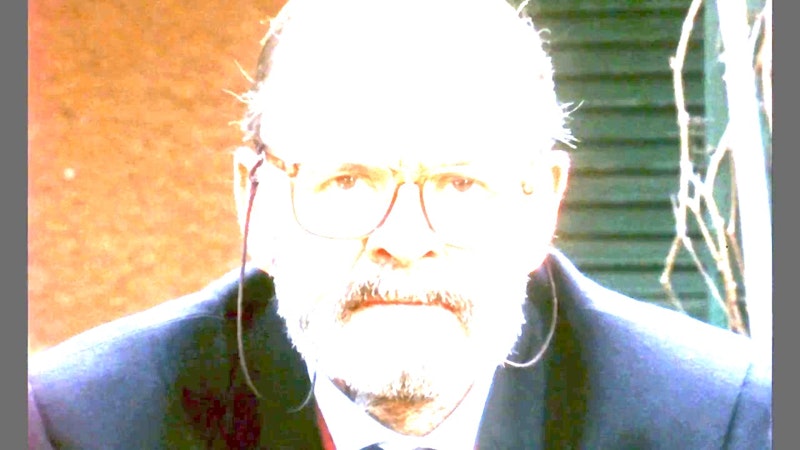Once, if I remember well, I was walking up the aisles on a United Airlines flight, from Rome to New York City, when I landed on a pair of empty seats behind two Italian men who wouldn’t stop talking. There was hardly anybody on board—a blizzard was about to hit the east coast of the United States and we were the last plane going in—but I found it odd to hear these men talking, sometimes arguing, loudly in the back of the cabin. They sat near the front in first class; although my ticket was in the smoking section, no such thing existed in January 1996: just an outdated tag of an era that had yet to fully slip into the past. It was dark as I zoomed up the aisles silently, gliding on my wings as if we three were guiding the plane on our own, just a gentle sail and breeze from Italy to Manhattan.
As I reached their seats, I heard one of them say to the other, “I remember…”
“I remember…”
And then he lost his train of thought. Frustrated, tired, and disturbed by his inability to remember, the man let his head fall into his hands. He was silent and still, too exhausted to cry. His friend slapped him on the knee. “Enzo, what? What? What do you remember? What are you doing?” This was Enzo, tortured artist: a filmmaker, something I assumed immediately simply because of the way he talked about himself. “No one cares about me, everyone is against me, I have nothing left, there’s nothing left to do, my body’s breaking down, I can’t even remember my own… I can’t remember…” Now he was near tears, but angry, more than frustrated, and his producer (I assumed) now patted his knee rather than slapped it. “You must listen to me, then. You will take Quentin Tarantino’s distribution deal…”
Enzo slammed his hand on the plastic foldout tray. “NO! I will NOT take the deal of Mr. Tarantino. He is already in business with Fulci. FULCI! A hack. No. I will not. Stop trying to trick me, Giuseppe.” That’s right, I knew it was Giuseppe Conti! In the 1990s, I provided consulting work on a number of big-budget Hollywood action films as a kickback from my mercenary service, and I’d parlayed that into independent film advisement. I worked on about a dozen productions, most of them minor, low-key affairs that merely paid, and not even well; I’ve never written about them because they were about as eventful as a trip to the meadow for a lemon.
But who was Enzo? I didn’t have to wonder long: “I will sign Mr. Tarantino’s deal if he accepts my trilogy, not the single film. ENZO BUCCI WILL NOT BE CUT IN THREE!!!” Enzo B. Bucci was, like Lucio Fulci, an Italian genre director who worked from the 1960s through the mid-1990s before dying in his early-60s. This was just two months before he died. Like Fulci, Enzo Bucci was never celebrated in his home country, nor particularly in America or elsewhere in Europe, but he made a living. Unlike Fulci, however, he hadn’t experienced a twilight boom sponsored by then-new superstar Quentin Tarantino: after the success of Reservoir Dogs and Pulp Fiction, Tarantino could do whatever he wanted, and one of the things he did was start a distribution label through Miramax.
It was calling Rolling Thunder Pictures, and they re-released a number of little-seen exploitation, genre, and foreign films in multiplexes across America throughout the second half of the 1990s. These were movies like Switchblade Sisters, Mighty Peking Man, and Fulci’s famous early-1980s trilogy: City of the Living Dead, The House by the Cemetery, and The Beyond. Unlike most of the titles distributed by Rolling Thunder, Fulci’s films all became breakaway hits, with The Beyond earning more money at the box office than The Ice Storm, Absolute Power, and Good Will Hunting in 1997. Weeks before his diabetes related death in 2009, Fulci was given an honorary Oscar by Tarantino himself, thanking the industry that allowed him to continue making films into the 21st century on the biggest scale possible.
Enzo Bucci never had that.
There was no twilight bump in his career.
This was one of the last flights he would ever take.
And he spent most of it bitching about Lucio Fulci.
“They always are now talking about ‘Fulci, Fulci, Fulci,’ as if he weren’t copying Sergio and Luciano and DARIO all these years… it makes me sick, I hate the rat…”
Giuseppe reminded Enzo that he had liked Pulp Fiction. “It’s a great film,” Enzo agreed, “but I will not be second fiddle, or sloppy seconds, however they say it… I will not have it be set up so I get Lucio’s leftovers. I’m sorry, no! Mr. Tarantino will surely understand. I’m under the impression that he wants to hurt Oliver Stone?” Giuseppe laughed and shook his head, “No no no, that was last year, they’ve made u—well, actually no, they haven’t made up, but they are simply not talking—” Enzo interrupted: “So is there a script of his I could direct? Or would he call me a pig in the press as well? You can’t trust anyone, Giuseppe. It’s not anymore, you can’t trust anyone. It was NEVER! You never could trust someone.”
That sucked the air out of Giuseppe, and for the first time since I found these empty seats, he seemed to ease up and lean back. But Enzo was still complaining. “You never can trust anyone…”
—Follow Monica Quibbits on Twitter: @MonicaQuibbits

